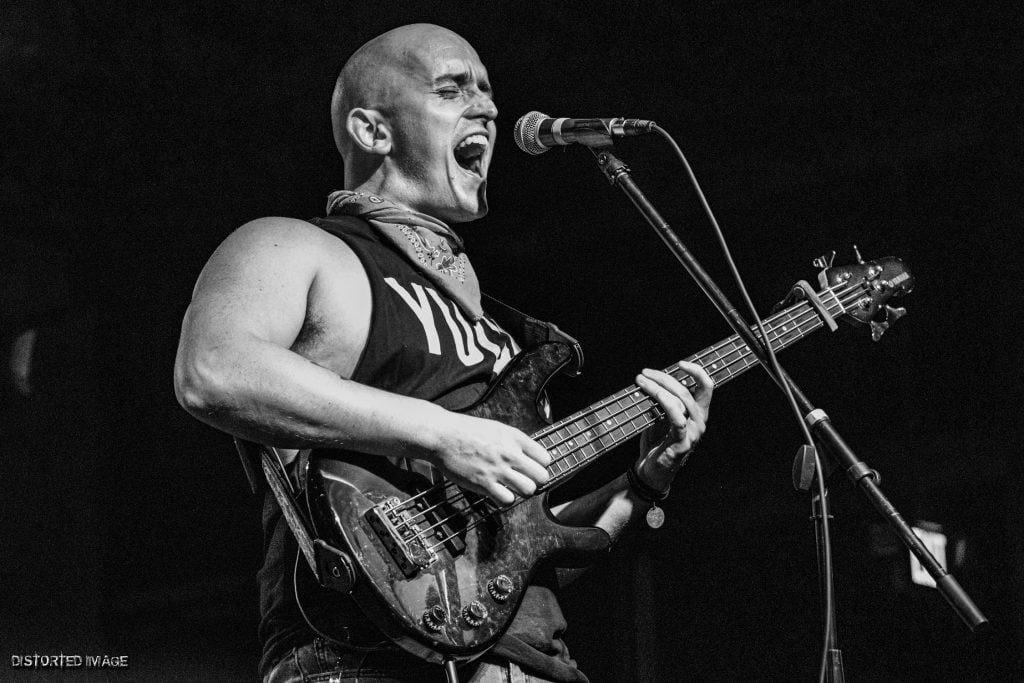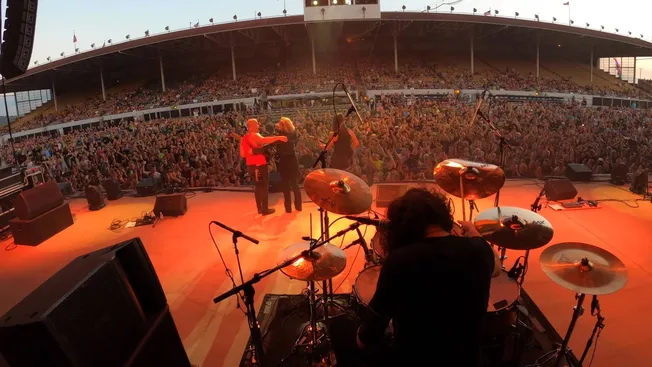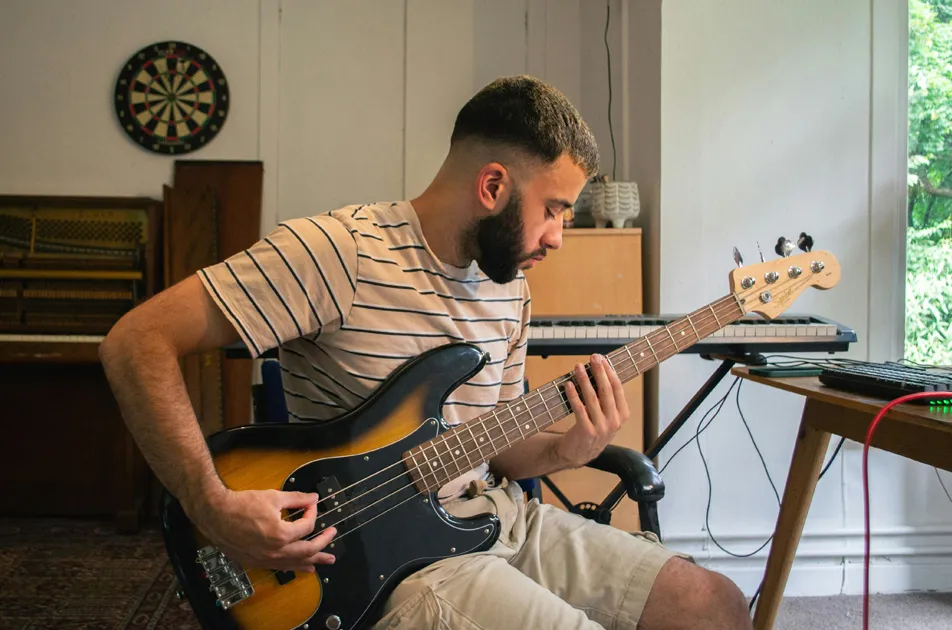A singer’s voice is both the vehicle for their creativity and how they earn their living. But while they know to hit the gym to stay fit for the stage, most vocalists take their voice for granted until it’s too late.

by vocal coach and independent musician Phillip Nathaniel Freeman
If one or more of the following apply;
You’re dissatisfied with your speaking & singing voice.
Your performance lacks consistency, endurance, and strength.
You’re doing all the right things vocally (warming up, breathing, using proper form, etc) and still not where you want to be.
You can barely speak the next day after a major vocal performance (public speaking, live show, etc).
I want you to focus on, re-evaluate, and be honest with yourself about, these three things:
Vocal Rest
Hydration
Sleep
As I said, obvious. The basics. You’ve heard every Voice Instructor say something to this effect, but I bet you’re not giving it the best you’ve got.
When you’re a pro athlete, powerlifter, Olympic swimmer, gymnast, etc. you work. Hard. Most pros don’t have the luxury of time to heal swollen & sore muscles, so they optimize the time they have and the resources they can muster to recover hard and fast so they’re on point day after day.
The same goes for vocal performance. It’s athletic…and I challenge anyone to prove me wrong.
Time to elaborate on ways you can get the most out of these three calls to action and create results if you take action, remain consistent, and respect the time it takes.
Vocal Rest
Silence; the best medicine. No talking. No whispering. No sound. Nothing…for hours, if not days at a time.
If I’m not 100% the next day after a show and I know I can’t do the same thing again the next night without recovery time, the first thing I do is shut up, for as long as it takes, until it’s game time (live shows, vocal training, voice acting).
It’s the ultimate way to recover and strengthen your instrument after heavy use.
That’s difficult for a noise maker like myself, but the result is beyond worth it when I hit the stage the next night, punch record for a voice over gig, or have a full day of training clients. If I don’t do it, I pay for it dearly and the people who paid me don’t get to have me at my best. They all deserve my best which demands the best I have, every single time.
If any of you think sitting in silence is easy, try sitting in a room with someone else for five minutes without saying a word…
You won’t last past three.
Take this all into consideration ESPECIALLY IF YOU’RE INJURED (vocal nodes, hemorrhage, etc.)
If you think vocal rest it’s a waste of time, tell that to someone who has had vocal surgery. I guarantee they’ll tell you otherwise.
It takes a special kind of commitment that some people just simply can’t handle.
I heard a story once of an individual that elected not to have vocal surgery and decided to live with permanent vocal damage. Why? They couldn’t take being silent for a mere six weeks…
That’s their funeral, but if you’re committed to vocal excellence and there’s even the slightest chance of bouncing back better and brighter than ever before, I don’t care if it takes six days, six weeks, six months, or 36 months. You do what’s required to get the desired result, if the desired result is worth it to you. It is to me.
Action. Consistency. Time.
Practice silence. Do it after heavy use. Respect the recovery time.
And if time is short, be intense and obsessed about your silence. If you’re injured, ramp that intensity and obsession over your silence tenfold. Chances are you’ll thank yourself when you make a full recovery as a result.
Until game time, silence is golden.

Hydration
There’s a lot of debate on this topic, but I know what works for me.
1 gallon of water / 3 quarts (3-4 liters) minimum per day with the proper balance of magnesium, potassium, and sodium. Consult your doctor and/or nutritionist about the right balance for you.
Everyone is different, and there is such a thing as overhydration, but between the two, I argue that the majority of issues vocalists face have to do with dehydration.
By the way, you can’t chug the dehydration in your vocal folds away instantly. According to a number of vocal studies & research, results show that the average time it takes for water you consume to reach your vocal folds is 4 hours.
Now you understand why consistent vocal hydration is so key.
The only way to instantly hydrate your vocal folds is through the use of steam using a nebulizer or humidifier. If you want to go that far, there are plenty of excellent portable models available for purchase. And you should only be breathing in the water vapor. No essential oils. No gimmicks. Water vapor.
In that vein, treat soda like a poison… that you take once in a while, but only on off days and during the show if you’ve hydrated like a boss leading up to it. If you’re a caffeine addict like me (I’m a dark roast, frothy top, battery acid, no cream & sugar type of psycho), one part coffee two parts water. Same thing with alcohol (beer, wine, etc). If you can do without, even better. It means you don’t have to compensate which heightens your chances of winning every performance.
Sports drinks are alright during and after the show, but avoid them beforehand. Too much sugar.
Water is your fail safe.
Again: Action. Consistency. Time.
Drink more water. Remain consistent. Respect the time it takes for the water to acclimate in your body.
You’ll thank yourself when you’re nailing that high note and stealing the show.
Sleep
Your voice isn’t just your vocal folds. When you’re in the zone, your entire body is your instrument. The aftermath of a 10/10 performance is exhilarating and equally exhausting. Anything less than 10/10 is even more exhausting. So what’s the answer to recovery, especially if you have to do it all over again the next day?
Sleep.
“But Phil, how can you say that? I barely get any sleep on tour, and neither do you.”
You’re right…which is why I nap and preserve my energy as much as humanly possible until it’s game time.
Here’s a routine I use on tour that I found works for me to get quality rest in a less than optimal sleep scenario, which when you’re on the road, is almost a daily occurrence.
Play show. Greet fans. Hug & shake hands. Get paid. Thank the venue staff. Load the trailer. Get in the back of the van. Nap hard until arriving at the hotel. Get up. Check in. Enter room. Take a LONG HOT SHOWER & BRUSH MY TEETH.
That last step is key. It makes three to five hours of sleep much better than waking up after seven or eight hours crusty and out of it. If I go with the latter, I wake up late and unprepared for what the day demands. Plus it’s no fun sleeping in your own dried sweat, BO, and filth.
Don’t have a hotel? No problem. Get a membership to Planet Fitness and get a black card membership. Most locations are open 24/7. $20-30 a month for you and a guest to go almost anywhere in the country, grab a shower, wash off the day, and even get a work out in. Truck stop showers are a thing too.
If none of those are an option, hit a Wal-Mart or gas station sink, grab some baby wipes, or poor bottled water over yourself that’s been cooking in the van all day. There’s no excuse for skipping out on something that’s going to make your sleep higher quality and possibly prevent you from getting sick.
I repeat, as many times as it takes for you to absorb this fully. Not just get it in your head but your entire body.
Action. Sleep
Consistency. Get it when you can.
Time. Respect the time it takes to shut your eyes and recover your body.Be obsessed with finding ways to make your sleep more intense and optimized.
Capstone
There’s always more that you can do, but without those three life preservers in some capacity, everything else sinks, while you’re treading water in the open sea, and there’s another hurricane on the way.
Furthermore when you have a day off from performing, on the road, or between weekends, CHERISH IT, especially if you’re in need of recovery. If you’re not 100%, this is a perfect time to sleep in, eat good food, hydrate, and practice vocal rest. If your team respects you as a vocalist and a member, they’ll let you do your thing…with a few one liners and well timed insults (enter my fellow bandmate Mr. Ben Guiles. I could write a whole satire article on him alone so stay tuned. Love ya bro).
Action. Consistency. Time.
Remain intense. Stay obsessed.
Win the stage.
If you enjoyed this article, and it helped you step up your vocal game, share it!
Feel free to ask any questions and touch base here or at thevocalblueprint@gmail.com





